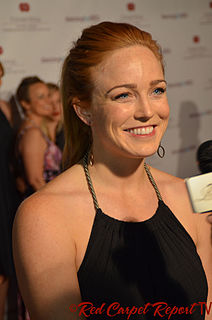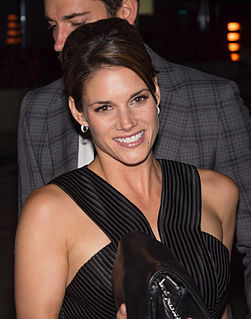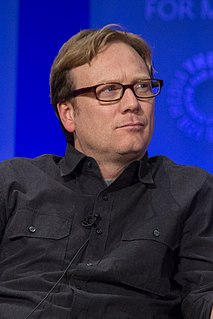A Quote by David Wenham
There's different ways of getting into character. There's what's called 'the outside,' in which is finding the physicality of the character first. To give an example, in 'Gettin' Square' - Johnny Spitieri - that's how I found that character. I knew those people that I'd seen up at Kings Cross. I knew how they sounded.
Related Quotes
If you do a black character or a female character or an Asian character, then they aren't just that character. They represent that race or that sex, and they can't be interesting because everything they do has to represent an entire block of people. You know, Superman isn't all white people and neither is Lex Luthor. We knew we had to present a range of characters within each ethnic group, which means that we couldn't do just one book. We had to do a series of books and we had to present a view of the world that's wider than the world we've seen before.
For me, with any character, there are different ways that you approach understanding him, and in this film in particular, because I had the novel to refer to. It's always really helpful to have all of that information and all of those hundreds more words which give you an idea into the background and your character and all.
There’s an old writing rule that says ‘Don’t have two character names start with the same letter’, but I knew at the beginning that I was going to have more than 26 characters, so I was in trouble there. Ultimately it comes down to what sounds right. And I struggle with that, finding the right name for a character. If I can’t find the right name I don’t know who the character is and I can’t proceed.
The sisters and brothers that you meet give you the materials which your character uses to build itself. It is said that some people are born great, others achieve it, some have it thrust upon them. In truth, the ways in which your character is built have to do with all three of those. Those around you, those you choose, and those who choose you.
Stage is so important because it teaches me how to convey character with words - how to convey how a character reacts by the way they appear on stage. I can usually tell a playwright from someone who has never written for the stage. Did the character work? Did the dialogue reveal who the character is?
I always knew that I could go deep. How deep? I don't know. But it always seems that with each character I take on, I'm challenged to go deeper than the last time, and then again deeper than the last time. This is the deepest I've ever been asked to dive. And to see how deep I actually went for this, and that I wasn't afraid to go there in order to give Tyler exactly what he envisioned for the character, which was pretty deep, that's what I discovered about myself.
It makes it easier, if you can't do an American accent. I don't know. It's different. I played a character in Never Let Me Go where the script for my character was very sparse, and I enjoyed it. With Never Let Me Go, I had a whole book written from my character's point of view, so I always knew where I was. But, with Ryan [Gosling], it was just easy. He's such a brilliant actor and he is so prepared. He doesn't have to warm himself up to be in a scene. He's just in it. It draws you in, in a way.



































